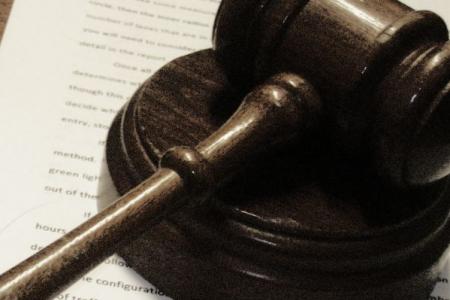Ex-teacher acquitted of indecent act with teenager
A former primary school teacher was cleared yesterday of three charges including two of committing an indecent act with a child.
In acquitting him after an 11-day trial, District Judge John Ng said that there was a "real possibility" that the two boys involved, aged 13 and 14 then, had colluded to make false allegations against the 40-year-old.
The former head of department and uniformed group leader cannot be named.
Together with a third boy, who did not claim to be a victim, the two reported to the police in 2014 that the man had placed the younger boy's hand on the accused's private parts; massaged the same boy; and procured an indecent act by a child.
The teacher's lawyers - Mr Adrian Wee and Ms Rachel Soh from Characterist - had argued during the trial that the boys made the allegations in a vindictive attempt to get back at him. They believed he had forced the 13-year-old boy to resign from the uniformed group and had hoped to improve the boy's chances of being reinstated in the man's absence.
Judge Ng said the prosecution had not been able to prove beyond a reasonable doubt that the accused had committed the alleged acts against the younger boy.
The boy had claimed the massages took place on Sundays across half a year, but the judge noted that he was unable to provide specific descriptions of the offending acts in relation to any specified occasion.
"The defence was able to provide indirect but credible evidence which made it unsafe to accept the evidence of (the younger boy)," Judge Ng said.
He also noted that there was a significant lapse of time from the revelation of the alleged offences to the time of making the police reports against the accused.
The reports were made in 2014 and, again, in 2015, after the older boy claimed he too had been a victim.
Judge Ng said the defence was not only able to point out the inconsistencies which cast doubts on the veracity of their accounts but was also able to show the boys had a clear motive to lie. Such a motive had likely sprung from the perceived unfair criticism and harsh treatment of the alleged victim by the accused which resulted in the latter leaving the uniformed group.
Get The New Paper on your phone with the free TNP app. Download from the Apple App Store or Google Play Store now



